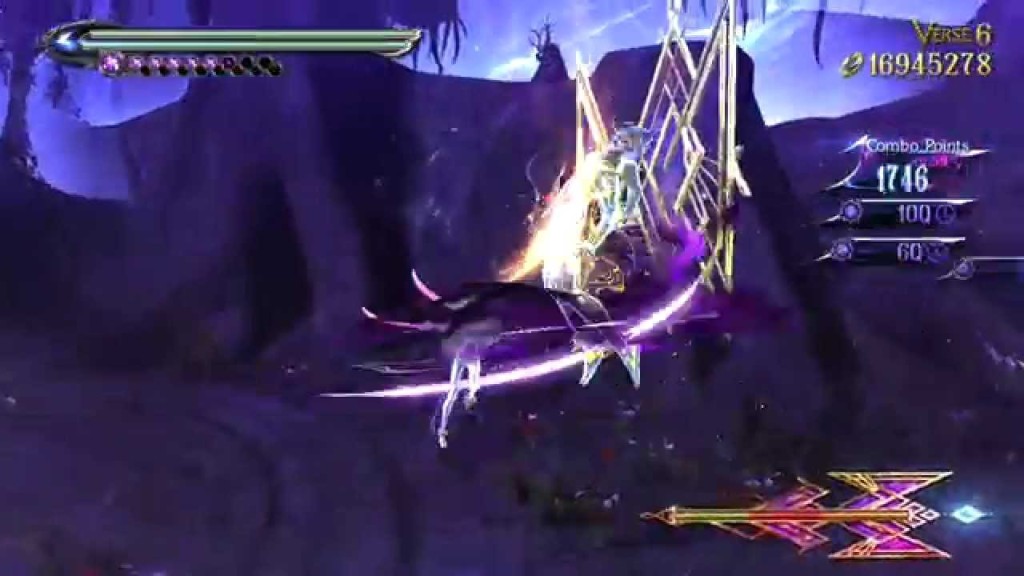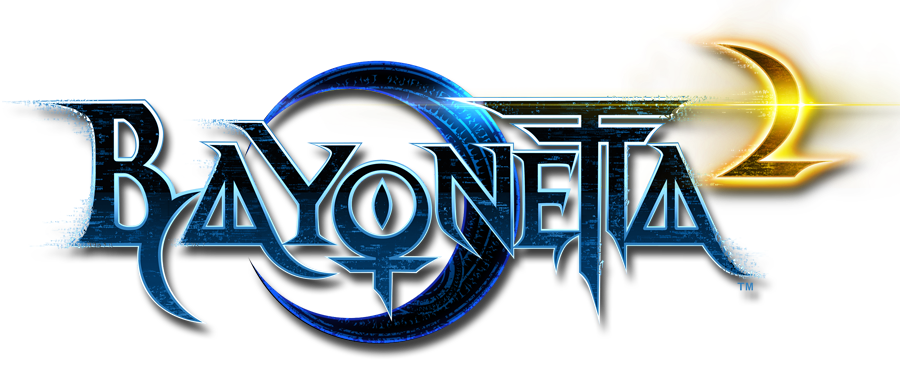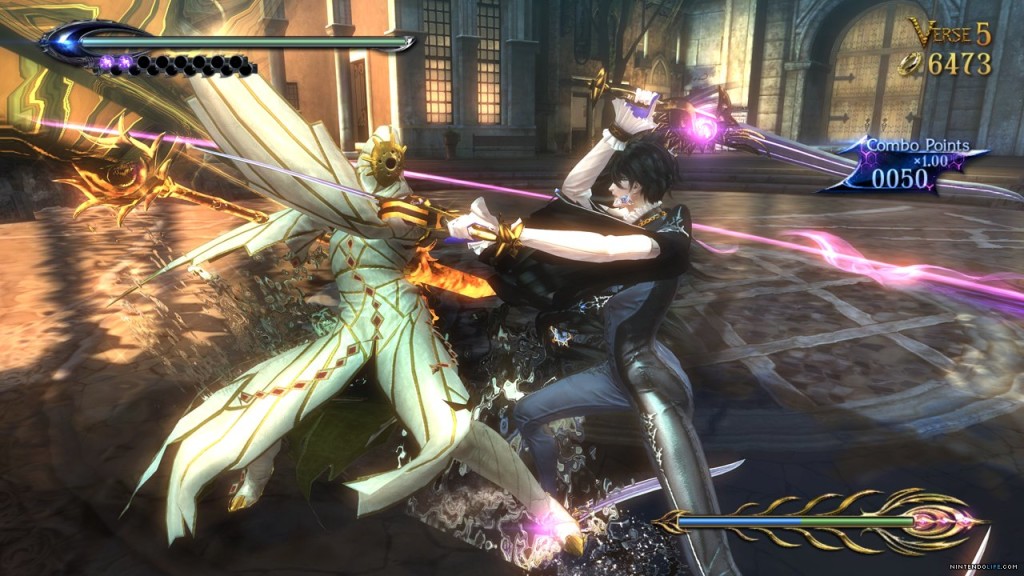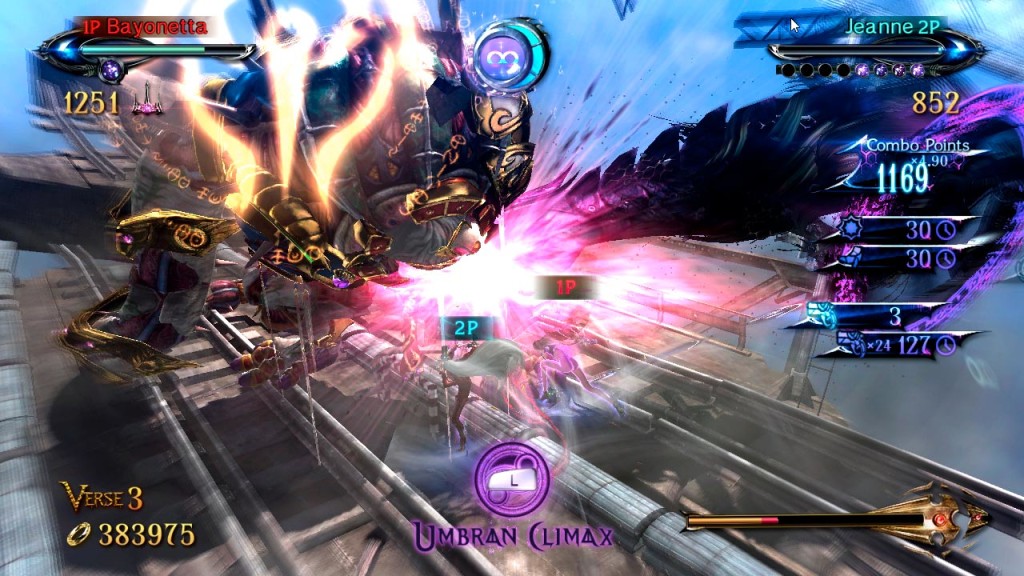Last updated on November 19, 2015
The game’s greatest problem isn’t in its mechanics; rather, it lies with a slavish, almost fetishistic adherence to the ideas and tropes set in the first game. The original Bayonetta held an almost insane disdain for common sense, frequently just doing whatever the heck it wanted. The lack of a settled universe meant they could do anything, and they didn’t need to callback to previous games or anything of that nature. Bayonetta 2, on the other hand, carries the burden of expectation, and tries to ape its predecessor on so many levels it makes me a little queasy. That remains the problem with many sequels, but Bayonetta 2 never really comes into its own, frequently marred by franchise tropes. I can almost imagine director Yusuki Hashimoto didn’t want to destroy Kamiya’s insane baby and just changed as little as possible, but that doesn’t make for a great video game.
Even the descent into Hell and Inferno enemies didn’t really turn things on its head all that much; they die just like angels and follow basic patterns like you’d expect. Even most of the new weapons remain echoes of the previous ones, not adding much into the process (other than simplifying move sets; the lack of “delay” attacks in many of the new weapons is pretty darn noticeable). Yes, these weapons present very different move sets overall (with no repeats, really), which I like, but many perform the same functions, so it’s a bit of a wash; for aesthetic variety though, it can’t be beat. While there’s a greater variety, there’s far less focus of purpose, and that will come down to what you like better in your combat action game.
Also, as a random aside, the exclusion of Angel Attack feels a little strange in the long run, given how much of the elements were carried from the first game. I do like the change that places Angel Arms on the shooting button, showing a tradoff between keeping a combo going and using a super powerful weapon. These will probably only affect the few people with nostalgia for Angel Attack and/or scoring run Angel Arm use, so that’s that.
So here’s how I look at it: Bayonetta 2 is a pretty amazing expansion pack (it comes with the original to boot!). Once you’ve beaten the game, there’s tons of other weapons, items, costumes, characters and abilities to unlock. They also present the same basic concept as the “Lost Chapter” of Bayonetta’s first installment, now know as “Witch Trials”. They’re smaller sets of combat scenarios, and these don’t have the same problem as typical combat scenarios due to the enclosed space. A pleothera of different characters use Witch Time differently, and can change your entire approach to many basic combat encounters.

Combat remains as wonderful and precise as ever, and functionally works the exact same. New enemy types means new muscle memory to learn, so the game does keep veterans on their toes for the dodge timings. There’s not a single time when the combat becomes boring, because it’s really the exact same thing as the previous game except for the Umbran Climax addition. Forcing you to manage and think about the magic gauge via the Umbran Climax actually presents a fine addition to the Bayonetta formula: do I go for an AoE clear and health recovery or a single enemy death? On boss fights, the answer is obvious, but you’ll actually pay attention to it now beyond Tetsuzanko/Heel Stomp and Torture Attacks. It’s also nice to have an Umbran Climax indicator in the middle of the screen, which intuitively tells you that the magic gauge is available for that or Torture Attacks in an incredibly elegant way (rather than looking at eight magic balls). Getting hit also doesn’t make you lose magic meter, which could be an enhancement or a detriment, depending on your view of things.
Like all expansion packs, it also adds a wonderful/worthless mode, depending on your point of view, known as Tag Climax. Bayonetta now has co-op! Yay! As befitting the competitive, score-based nature of the normal game, Tag Climax pits two players into a series of chosen arenas (Verse Cards) from the rest of the game (along with some hidden insane challenges that are borderline impossible). You must complete six battles in a row to retain all the halos you earn; at the same time, the players pick the stages based on who wins the previous stage. The difficulty of each stage isn’t set, though. Each player bets a certain number of halos that they will finish the stages with a higher overall score; the more you bet, the bigger bonus you earn, but you also make the stage substantially harder as a result (and when I say “hard”, I mean “get hit and you die”).
It’s interesting to create a competitive component that also requires two players to work together. Any player activating Witch Time activates it for both, and the Umbran Climax is on a separate magic meter, which means everyone obtains the benefits of the game’s essential mechanics. The different character choices also change the mechanics of Witch Time, so each player could potentially bring more power if they’re good enough (Jeanne especially, and possibly Rodin). Other players also need to watch each other’s health and revive them if they die. You don’t regain full health between verses, either, meaning both players should only pick Verse Cards within their means and ability to finish. If both players die, then you must start all over from the beginning and lose all your newly earned currency in the process, so you do want to help your friend/foe.
Unfortunately, and this struck me as weird, winning or losing a Verse isn’t reliant on score. Rather, there’s a point counter that determines who wins; more powerful weapons give more points, but as long as you’re hitting something you get the points. Even if you get a Pure Platinum rank for a Verse, you may still lose based on that point counter. You can imagine how frustrating this sounds – you play well, exactly as the main game tells you to play, and you still lose. I think that comes down to allowing players to equip whatever in Tag Climax, including the Climax Brace (and its cousin). That gives the player unlimited magic power AND constant Wicked Weaves; there’s a reason they disable scoring if you have it on, but since scoring doesn’t matter here, it just breaks Tag Climax unless both players have it. It’s just not balanced well! That doesn’t mean it isn’t fun, just that it in no way represents anything but a distraction from the main course, the salad to Bayonetta 2’s filet mignon.



